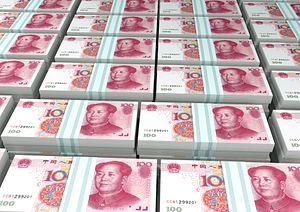As China’s “go global” policy picks up steam, foreign governments have become increasingly skeptical about the intentions of Chinese state owned enterprises (SOEs) and their effects on the host nation’s economy. From slapping anti-dumping duties and tariffs on main Chinese products, to strong-arming Beijing’s leadership to implement tougher regulatory standards, China’s “peaceful rise” is increasingly being challenged by the West. The Middle Kingdom can only escape the middle-income trap by tapping into the global market, but this access remains conditional on playing by the free market rules decades of trade liberalization have created.
Beijing is now very close to butting up against the glass ceiling these international rules have created. Perhaps the best example comes from the much-touted takeover of Swiss agrochemical company Syngenta by state-owned giant ChemChina, a transaction valued at a whopping $43 billion. As the largest Chinese foreign acquisition in history, the offer has sent government regulators in a tizzy, bringing into the limelight a little known American regulatory body called the Committee on Foreign Investment in the United States (CFIUS). Operating under the auspices of the U.S. Treasury Department, it is authorized to investigate foreign capital transactions and assess their possible national security implications for the United States.
As many pointed out before, the deal is expected to face strong headwinds from CFIUS as some of Syngenta’s U.S. plants are located too close American military bases – a major no-go for the regulators. It’s no small wonder analysts from CLSA gave the deal a 35 percent chance of going through.
However, while CFIUS has a very narrow mandate and looks at details beyond the control of China’s government, the European Union’s own regulatory body – the Directorate-General for Competition (DG COMP) of the European Commission – could be even more consequential. Through a recent decision on the joint venture between China General Nuclear Power Corporation (CGN) and Électricité de France (EDF) for three nuclear facilities in the U.K., DG COMP sent out a strong message to China’s leadership that could expose Beijing’s outward expansion to be nothing more than a Icarus flight.
The decision analyzed the joint venture’s consequences in relation to other Chinese SOEs operating in the nuclear sector in other markets. Departing from previous assessments, the European Commission concluded that CGN failed to prove its decision-making powers were sufficiently autonomous from the Chinese state. The Commission then looked at all the assets managed by China’s Central SASAC [State-owned Assets Supervision and Administration Commission of the State Council] that are active in the energy industry. Assessing whether a deal could be bad for competition in a certain sector now means looking at SASAC as a single, unitary actor, making competition concerns much more likely.
That is bad news for China’s SOEs – including ChemChina, which was among the companies singled out by the Commission’s decision. Under the new precedent, the EU could reasonably be expected to force a Chinese company to abandon a deal if this offers the SASAC too much control over a sector or regulators could apply stringent conditions (such as divesting assets) before approval can be granted.
What’s more, the EU has reserved the right to look at deals involving two non-EU businesses, even if the proposed venture is not active in the EU. If the SASAC has sufficient turnover within the EU, the matter will fall under the Commission’s remit. Secondly, parties to the proposed deal will need to provide a lot more information about themselves when filing a transaction. The time between a case filing and reaching a decision is therefore likely to increase, while obtaining clearance may become more difficult. Failing to file before EU regulators could result in seriously financial penalties: up to 10 percent of annual global turnover.
And the kicker? This extensive control only happens in the case of foreign-to-foreign transactions because the companies are deemed too close to the Chinese state. Had these been private companies, they wouldn’t have fallen under the EU’s jurisdiction.
Chinese leaders have recognized this issue. In 2013, Chinese Prime Minister Li Keqiang called for “greater reliance on the private sector and reduced dependence on governmental regulations and oversight of the economy,” recognizing the need to “rely much more on the creativity and resourcefulness of the private sector if it is to move beyond middle income status[…]”. In an influential report, the World Bank highlighted the importance of a vibrant corporate sector characterized by competition, abolishing lending practices preferential to SOEs, and restructuring the SOE sector by breaking up monopolies.
China thus needs to accomplish a genuine shift to the private sector if it wants to expand its reach beyond its borders. As Curtis Milhaupt and Wentong Zheng write, this process necessitates “market-neutral institutions” consisting of a corporate law that “permits entrepreneurs to contract away from state-favored organizational forms,” a stringent, well-enforced anti-monopoly law, and the “elimination of preferential access to bank finance and the capital markets for state-favored firms.” In other words, the state must be rolled back through deep-reaching transformations that incentivize the growth of companies not boasting ties to the party-state.
Achieving these goals has been a formidable challenge for the Chinese leadership, as vested interests work against changes to the status quo. SOE reform epitomizes this problem: a document published during the Third Plenum contained a number of potentially powerful ideas for state enterprise reform, such as managing SOEs as capital rather than assets. While ambiguous, the ideas proposed in the document hinted at a shift to a system of SOE management more consistent with the demands of capital markets. Unfortunately, implementation reached a deadlock almost immediately due to internal systemic conflicts of interest.
Moving forward, China has no choice but to implement these reforms in order to remain an economic force in a world that is increasingly inter-connected at ever-faster speeds. The writing is on the wall, and not even the mighty CCP will be able to resist the realities of the modern, global economy.
Rob Edens is a London-based researcher.

































